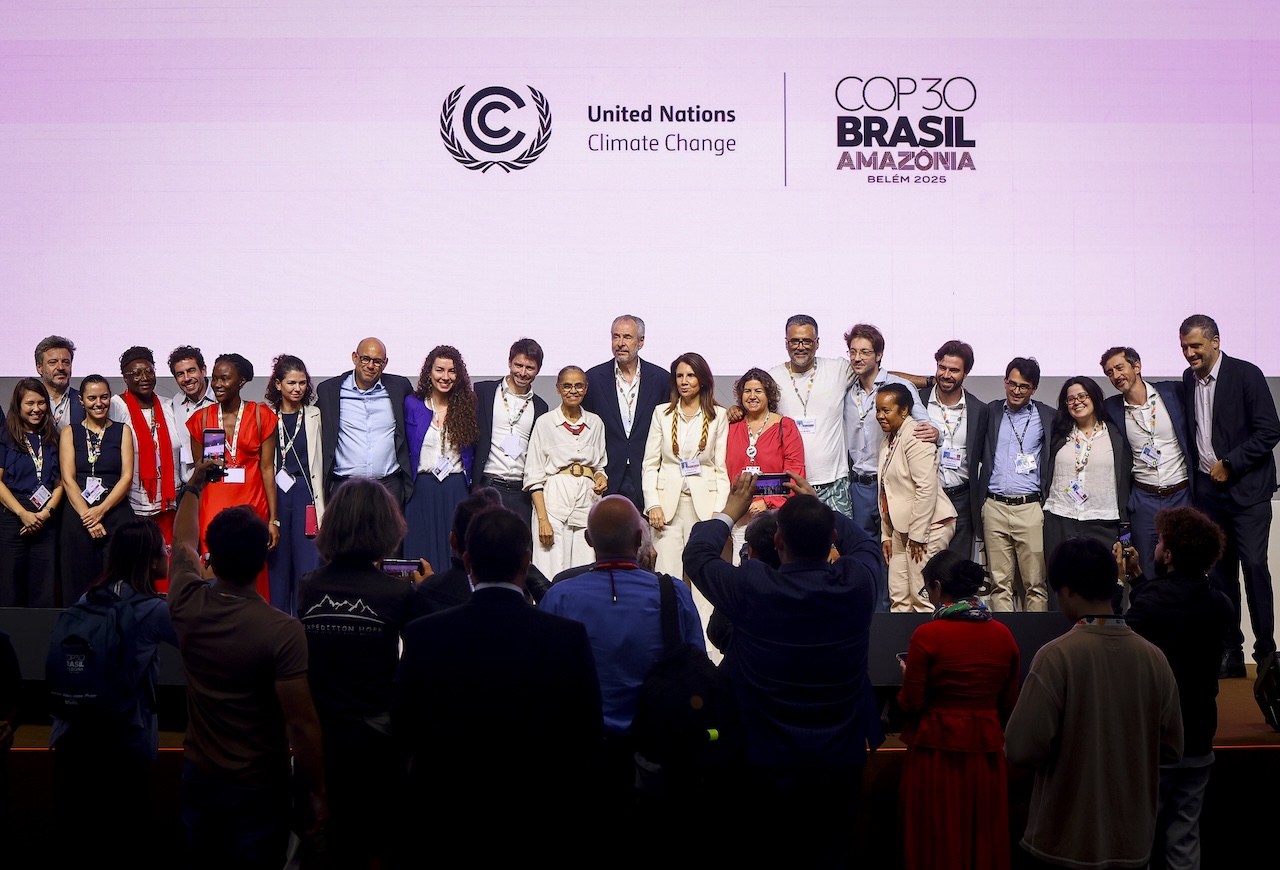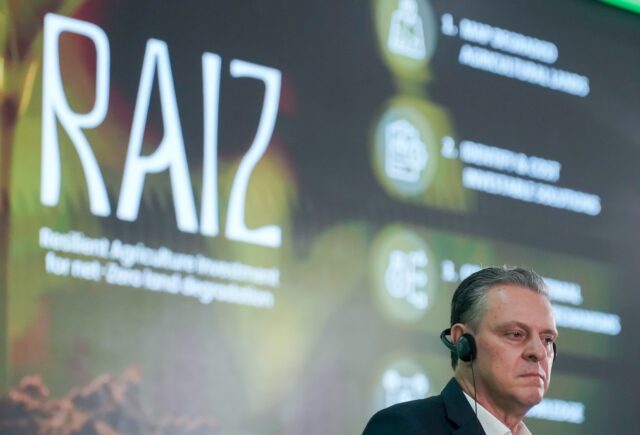At the COP 30 summit Belém, Europe did not get what it would have liked. Countries agreed to strive to triple funding for adaptation. But a plan to phase out fossil fuels did not come about, despite a back-guard battle by the EU.

On Saturday morning, COP 30 president André Corrêa do Lago walks through the corridors of the Brazilian conference center with a big smile on his face. At the UN climate summit in Belém, an agreement has been reached to triple funding for adaptation—adjusting to the effects of climate change. But apart from Corrêa do Lago, no one is really happy. No agreement was reached on phasing out oil and gas. This is a disappointment for Europe.
It is also a disappointment for Colombia, which raised objections after the gavel fell. The country argued that it was not given sufficient time to speak at the final meeting and said it would not support a deal that fails to make progress in preventing climate change. “There can be no mitigation if we cannot discuss the phasing out of fossil fuels.” President Corrêa do Lago apologised for not giving Colombia the floor in time, but insisted: what’s done is done. The agreement stands.
Tripling of adaptation funding
For a long time, tripling adaptation funding seemed unacceptable for Europe, but host country Brazil has found a form that Brussels can live with, albeit reluctantly. The tripling remains within the climate financing agreed last year. At the previous climate summit in Baku, a deal was struck that rich countries would build up climate aid to $300bn (€259.8bn) per year by 2035.
Developing countries actually wanted additional funding for adaptation this year, on top of the previously agreed amount. But Europe would not agree to this “under any circumstances,” European commissioner for climate action Wopke Hoekstra said on Friday. It has now been decided that a larger portion of the $300bn must be allocated to adaptation projects.
Developing countries were hoping for $120bn per year, but the text does not specify an amount. That is why the agreement is also disappointing for them, says Barbara Rosen Jacobsen of the development organisation Mercy Corps. “It is not clear which figure will be tripled, who will have to contribute, and what kind of financing will be used.”
In principle, the shift does not mean that rich countries will immediately pay more, but it does have consequences. Adaptation investments—such as financing a dike—are less easily recouped than investments in mitigation, such as sustainable energy projects. Adaptation hardly pays for itself, which means that in practice it is more often a matter of grants than loans.
The agreement has little impact on the Netherlands, confirms a spokesperson for outgoing climate minister Sophie Hermans (VVD), because the Netherlands already spends around 60% of its international climate funding on adaptation
‘We wanted more’
“We won’t hide the fact that we wanted much more,” says European commissioner Hoekstra. According to him, the climate problem requires more ambition to combat global warming. Nevertheless, he calls the current deal, with additional adaptation funding “a step forward”. “It shows that we stand shoulder to shoulder with our friends from the poorest countries.”
Europe “really fought” to get improvements in the text, says MEP Bas Eickhout (GroenLinks-PvdA), but he believes the result remains disappointing. “It has become painfully clear that Europe stood alone in its plea for more ambition.”
Negotiations late into the night
Late on Friday evening, an agreement still seemed miles away. Countries negotiated late into the night, and for a long time it seemed that the European Union was digging in its heels. Europe wanted to make substantial agreements to reduce greenhouse gas emissions, including a plan to phase out fossil fuels.
More than 80 countries, including the Netherlands, spoke out in favour of this during the two weeks in Belém. As Luxembourg’s climate minister Serge Wilmes put it earlier in the week: “Without action on mitigation, we are stuck in a hamster wheel of ever-increasing adaptation costs.”
Support for phasing out fossil fuels insufficient
Nevertheless, in the final negotiations, the EU was unable to find enough supporters to stand up to the oil states, which strongly opposed the phasing out of oil and gas. “An agreement on fossil fuels was blocked by a small group of countries,” said Maarten de Zeeuw of Greenpeace.
The eagerly desired phase-out did not make it into the main text. But President André Corrêa do Lago came up with a ruse: because the Brazilian presidency itself was sympathetic to the plan, he turned it into a “presidential initiative”. What this exactly entails is still unclear – it will probably end up as a non-binding plan that countries can join. “We still have a whole year to work on this,” said Corrêa do Lago.
MEP Eickhout is critical: “All the presidency is saying is: we think this is important. But what the concrete consequences of that are is unclear. The proposal simply has not been accepted by enough countries, period.”
A small ray of hope
Civil society organisations see a small ray of hope in the decision on a “fair transition”. The idea is that the energy transition must take into account the circumstances of people who work in coal or lithium mines, for example. To ensure that they work in a safe environment or do not end up in poverty when a mine closes, it has been decided that an authority will be set up to monitor this. Agnes Schim van der Loeff of human rights organisation Action Aid calls it “the big win of this summit”.






